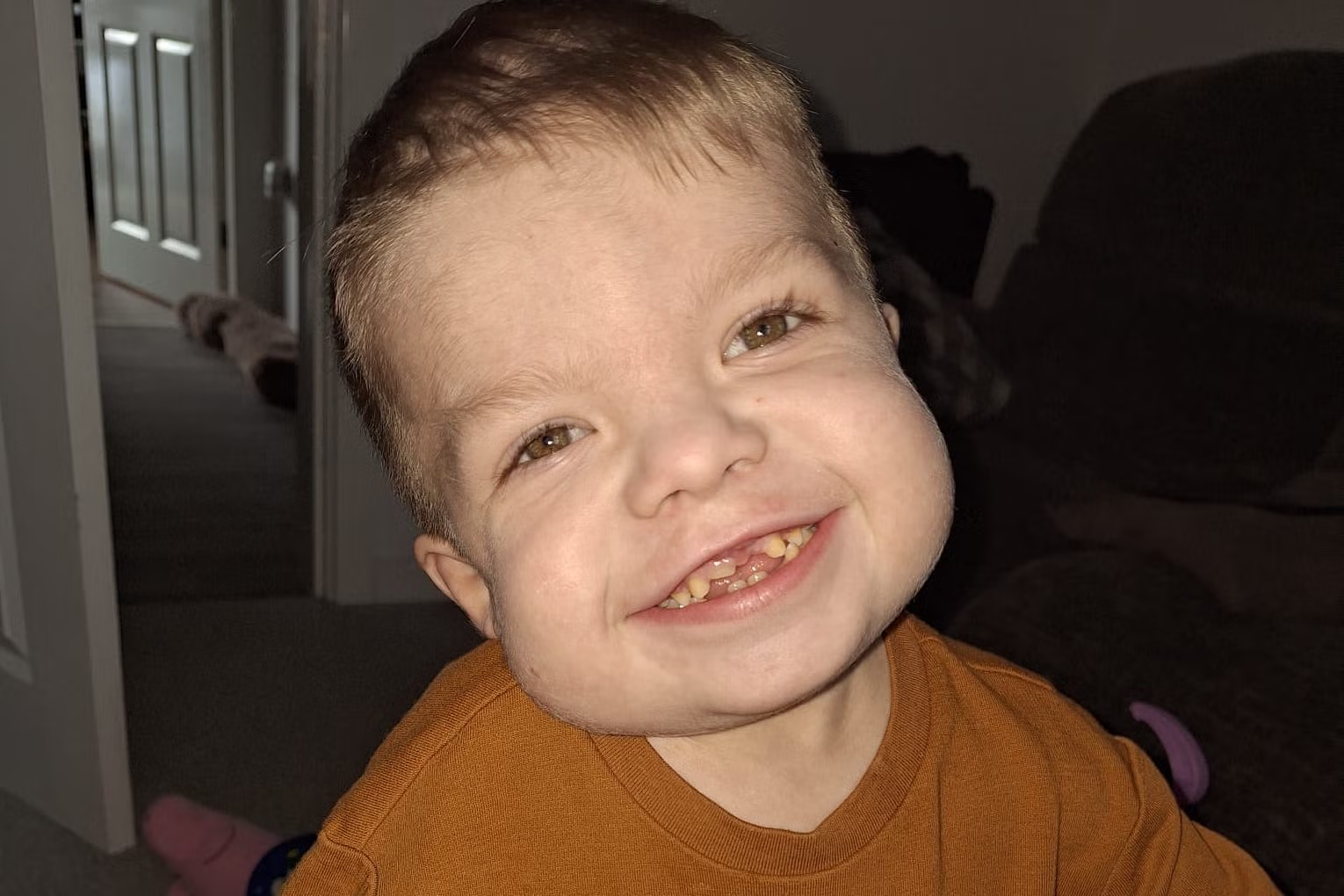Boy no longer has to travel for treatment thanks to father’s kidney donation
Shaemus Flood, seven, was born with a rare condition and was being treated at a hospital more than 40 miles from his home, up to seven days a week.

Your support helps us to tell the story
From reproductive rights to climate change to Big Tech, The Independent is on the ground when the story is developing. Whether it's investigating the financials of Elon Musk's pro-Trump PAC or producing our latest documentary, 'The A Word', which shines a light on the American women fighting for reproductive rights, we know how important it is to parse out the facts from the messaging.
At such a critical moment in US history, we need reporters on the ground. Your donation allows us to keep sending journalists to speak to both sides of the story.
The Independent is trusted by Americans across the entire political spectrum. And unlike many other quality news outlets, we choose not to lock Americans out of our reporting and analysis with paywalls. We believe quality journalism should be available to everyone, paid for by those who can afford it.
Your support makes all the difference.A seven-year-old boy with a rare condition, whose family was forced to travel up to two hours a day, seven days a week for treatment, is recovering well after receiving a kidney transplant from his father.
Shaemus Flood was born with Jeune’s syndrome, a form of congenital dwarfism which causes deformities in the chest.
People with the condition are susceptible to liver and kidney disease, as well as respiratory symptoms.
When Shaemus developed stage five kidney disease, the family was able to perform dialysis at home, which could take up to 13 hours.
This lasted four years, until Shaemus required hemodialysis.
During this treatment, the patient is hooked to a machine in hospital, which pumps the blood out of the body to be filtered before it is returned.
For 10 months, the family was required to travel from their home Oswaldtwistle, Lancashire, to Alder Hey Children’s Hospital in Liverpool up to seven times a week.
The journey – more than 40 miles each way – can take up to an hour in good traffic, they said.
Shaemus’ consultant, paediatric nephrologist Dr Caroline Jones, added: “Although dialysis is an incredible life-saving method it can only perform up to 10 % of kidney function and therefore children may often feel unwell and have restrictions to what they can eat and how much they can drink
“It is also not a permanent solution and can be very time consuming for children and their families.
“Although a kidney transplant needs to be well looked after with regular medical check ups and medication children feel much better, can attend school more regularly and eat and drink more freely.
“We’ve been busy preparing Shaemus for a new kidney, we had to wait until he was big enough and strong enough.”
Shaemus’ mother and father, Sarah and Kieran Flood, were tested to see if their kidneys were compatible with their son’s.
Mr Flood was found to be a perfect match, with the procedure carried out at Manchester Children’s Hospital on January 11.
Shaemus has since returned to Alder Hey, with him and his father now recovering well.
Mrs Flood said she is looking forward to spending more time together as a family at home.
“It’s so peculiar not to be at Alder Hey every day,” she added. “We’re hoping Shaemus can go back to school soon.
“The renal team have been amazing, without them and Caroline, we don’t think he’d be with us today.
“Shaemus’ favourite person is his little sister Josephine who has just turned one, they’re best friends. We can’t wait to spend more time together at home as a family.
“We’re so grateful Kieran was a match, this isn’t always the case for a lot of families and this is why registering for organ donation is so important.”